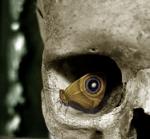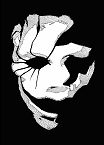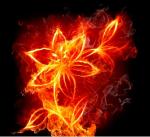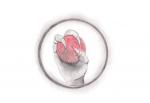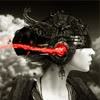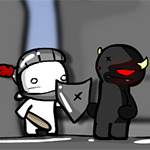Posted 04 September 2010 - 06:37 AM
"To live a hard life was to make solid and impregnable every way in, until no openings remained and the soul hid in darkness, and no-one else could hear its screams, its railing at injustice, its long, agonizing stretches of sadness. Hardness without created hardness within. Sadness was, as she well knew, not something that could be cured. It was not, in fact, a failing, not a flaw, not an illness of spirit. Sadness was never without reason, and to assert that it marked some kind of dysfunction did little more than prove ignorance, or worse, cowardly evasiveness in the one making the assertion. As if happiness was the only legitimate way of being. As if those failing at it needed to be locked away, made soporific with medications; as if the causes of sadness were merely traps and pitfalls in the proper climb to blissful contentment, things to be edged around or bridged, or leapt across on wings of false elation. Too often people mistook the sadness in others for self-pity, and in so doing revealed their own hardness of spirit, and more than a little malice" - Scillarra's thoughts on Duiker
"It seemed so easy for many people to divide war from peace, to confine their definitions to the un-ambivalent. Marching soldiers, pitched battles and slaughter. Locked armouries, treaties, fetes and city gates opened wide. But Fiddler knew that suffering thrived in both realms of existence - he'd witnessed too many faces of the poor, ancient crones and babes in a mother's arms, figures lying motionless on the roadside or in the gutters of streets - where the sewage flowed unceasing like rivers gathering their spent souls. And he had come to a conviction, lodged like an iron nail in his heart, and with its burning, searing realization, he could not longer walk and see what he saw with a neatly partitioned mind, replete with its host of judgements - that critical act of moral relativity - this is less, that is more. The truth in his heart was this: he no longer believed in peace. It did not exist except as an ideal to which endless lofty words paid service, a litany offering up the delusion that the absence of overt violence was sufficient in itself, was proof that one was better than the other. There was no dichotomy between war and peace - no true opposition except in their particular expressions of a ubiquitous inequity. Suffering was all-pervasive. Children starved at the feet of wealthy lords no matter how secure and unchallenged their rule. There was too much compassion within him - he knew that, for he could feel the pain, the helplessness, the invitation to despair, and from that despair came the desire - the need - to disengage, to throw up his hands and simply walk away, turn his back on all that he saw, all that he knew. If he could do nothing then, dammit, he would see nothing. What other choice was there? And so we weep for the fallen. We weep for those yet to fall, and in war the screams are loud and harsh, and in peace the wail is so drawn-out we tell ourselves we hear nothing. And so this music is a lament, and I am doomed to hear it's bittersweet notes for a lifetime. Show me a god that does not demand mortal suffering. Show me a god that celebrates diversity, a celebration that embraces even no-believers and is not threatened by them. Show me a god who understands the meaning of peace in life, not in death" - Fiddler's thoughts while playing a song for Braven Tooth, Ges & Stormy
"First in, last out, for the last time" - Picker and the surviving BBs as they leave Coral.
Blend slowly closed her eyes a second time. Oh, she was hurting, and a lot of that hurt couldn't be sewn up. They caught us. 'Picker'
'They slaughtered everyone, Blend. People with nothing but bad luck being here tonight. Skevos, Hedry, Larmas, little Boothal. All to take us down.'
From up the street came a squad of City Guard, lanterns swinging.
For such a scene as Blend was looking out on right now, there should be a crowd of unlookers, the ones hungry to see injured, dying people, the ones who fed on such things. But there was no one.
Because this was Guild work.
'Some of us are still breathing,' Blend said. 'It's not good to do that. Leave some marines still breathing.'
'No, it's not good at all.'
Blend knew taht tone. Still, she wondered. Are we enough? Is there enough in us to do this? Do we still have what's needed? They'd lost a healer and a mage this night. They'd lost the best of them. Because we were careless. - TtH, attack on Krul's Bar. The whole scene where the survivors gather to bury them hit me hard as well.
"Torn loose from the Malazan Empire, from Onearm's Host, the bedraggled clutch of survivors that was all that remained of the Bridgeburners had dragged their sorry backsides to Darujhistan. They found for themselves a cave where they could hide, surrounded by a handful of familiar faces, to remind them of what had pushed them each step of the way, from past to the present. And hoping it would be enouhg to take them into the future, one hesitant, wayward step at a time.
Slash knives into the midst of that meager, vulnerable clutch, and it just falls apart.
Mallet. Bluepearl." - TtH, Picker's thoughts while her soul drifts
Oh, what war does to people sniff sniff
Lives and loves, the gamut of existence was marked by such things. A breaking of paths, the ragged, uneven ever-forward stumble. Blood dried, eventually. Turned to dust. The corpses of kings were laid down and sealed in darkness and set away, to be forgotten. Graves were dug for fallen soldiers, vast pits like mouths in the earth, opened in hunger, and all the bodies were tumbled down, each exhaling a last gasp of lime dust. Survivors grieved, for a time, and looked upon empty rooms and empty beds, the scattering of possessions no-one possessed any longer, and wondered what was to come, what would be written anew on the wiped-clean slate. Wondering, how can I go on?

 Help
Help



